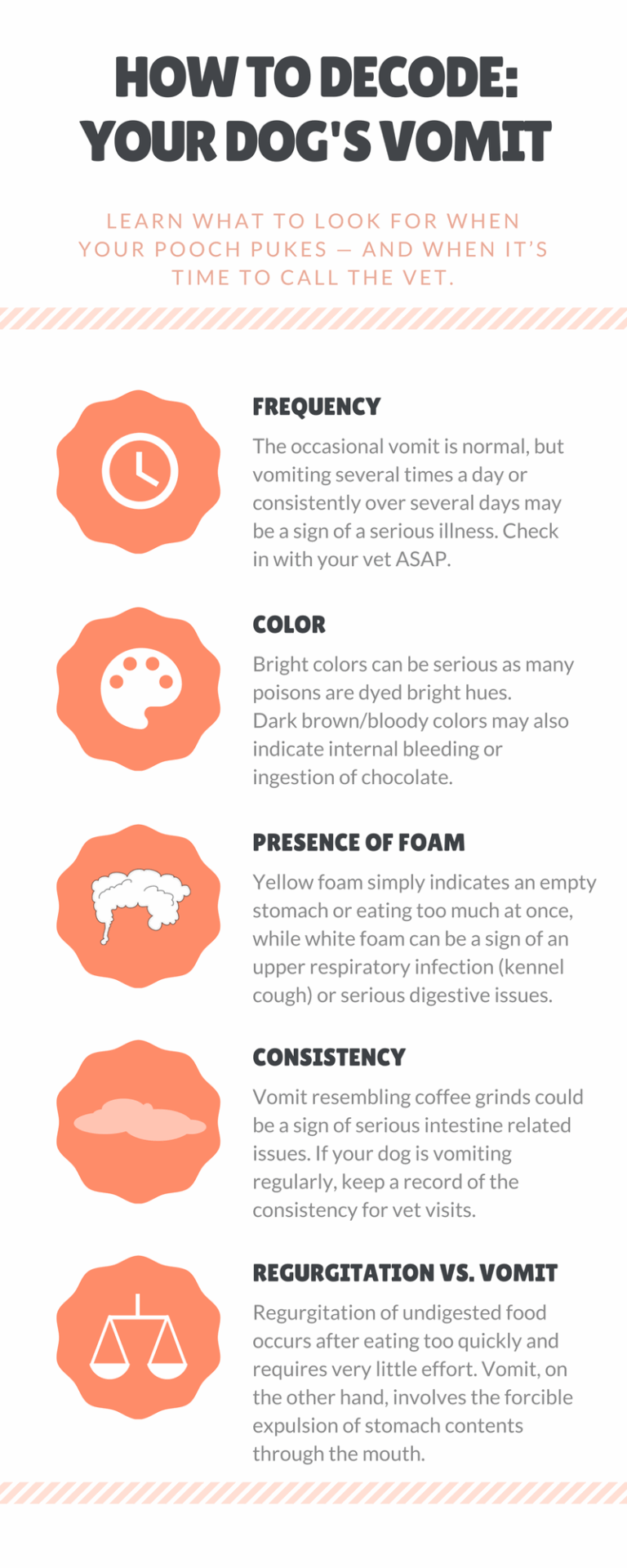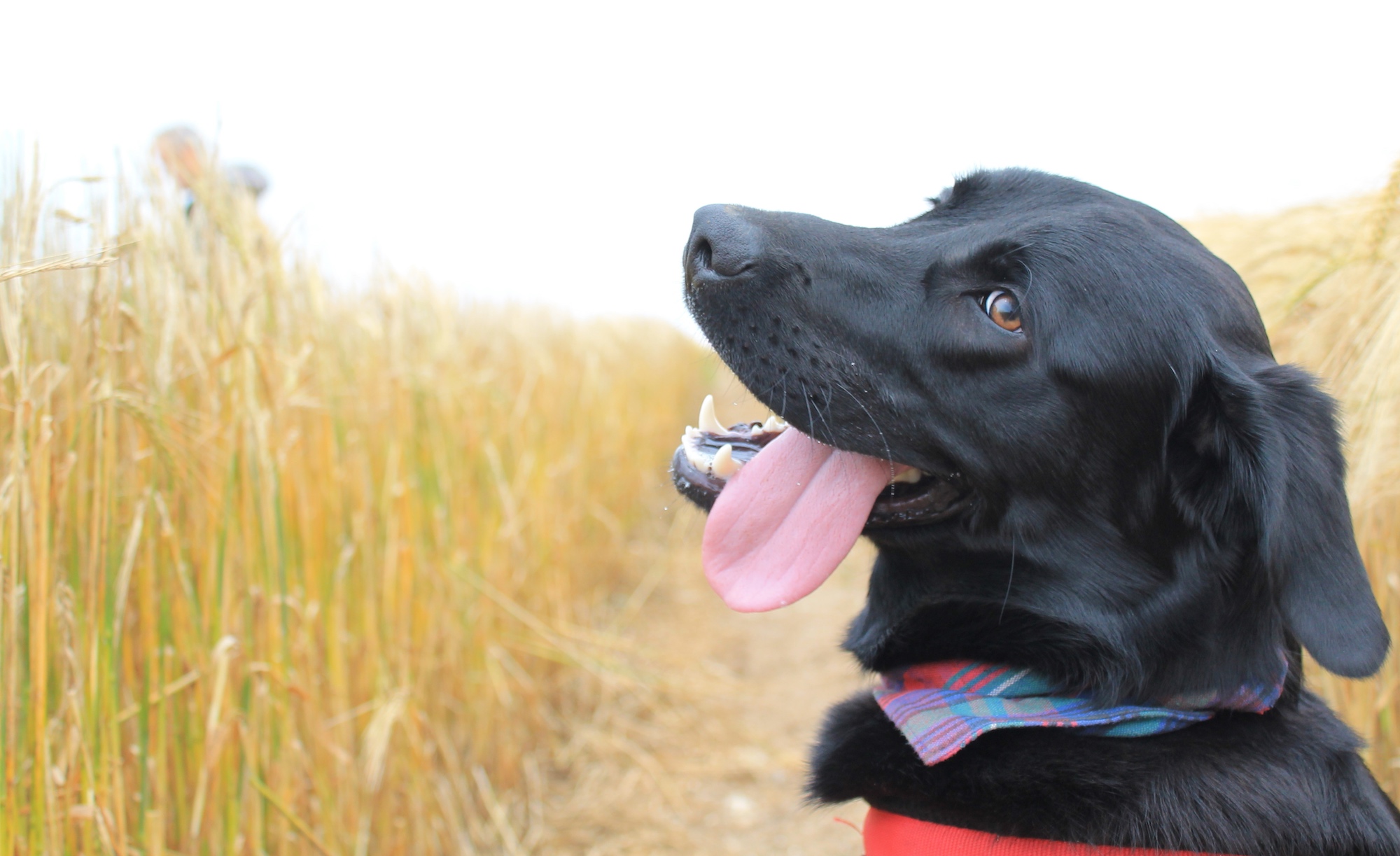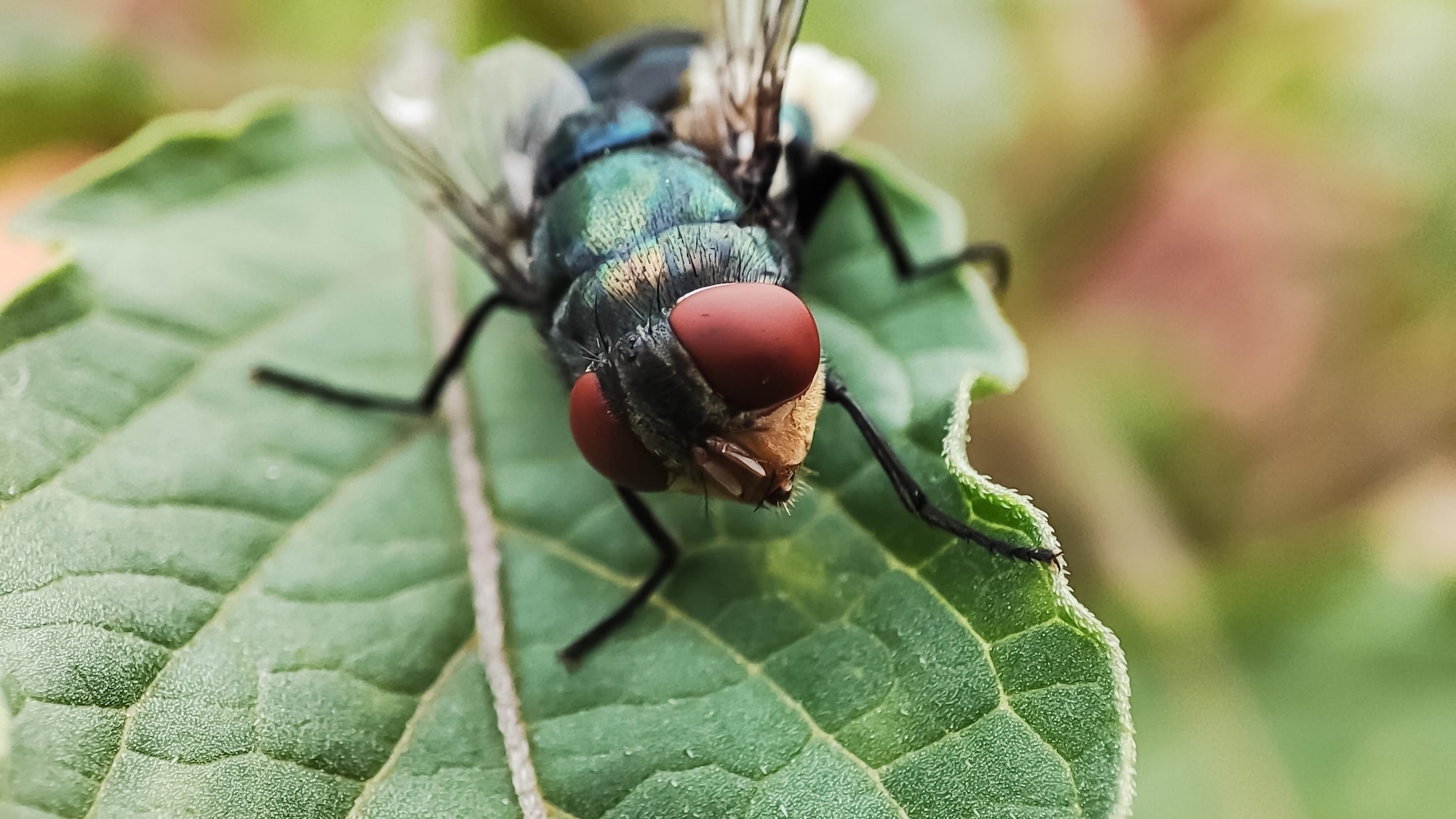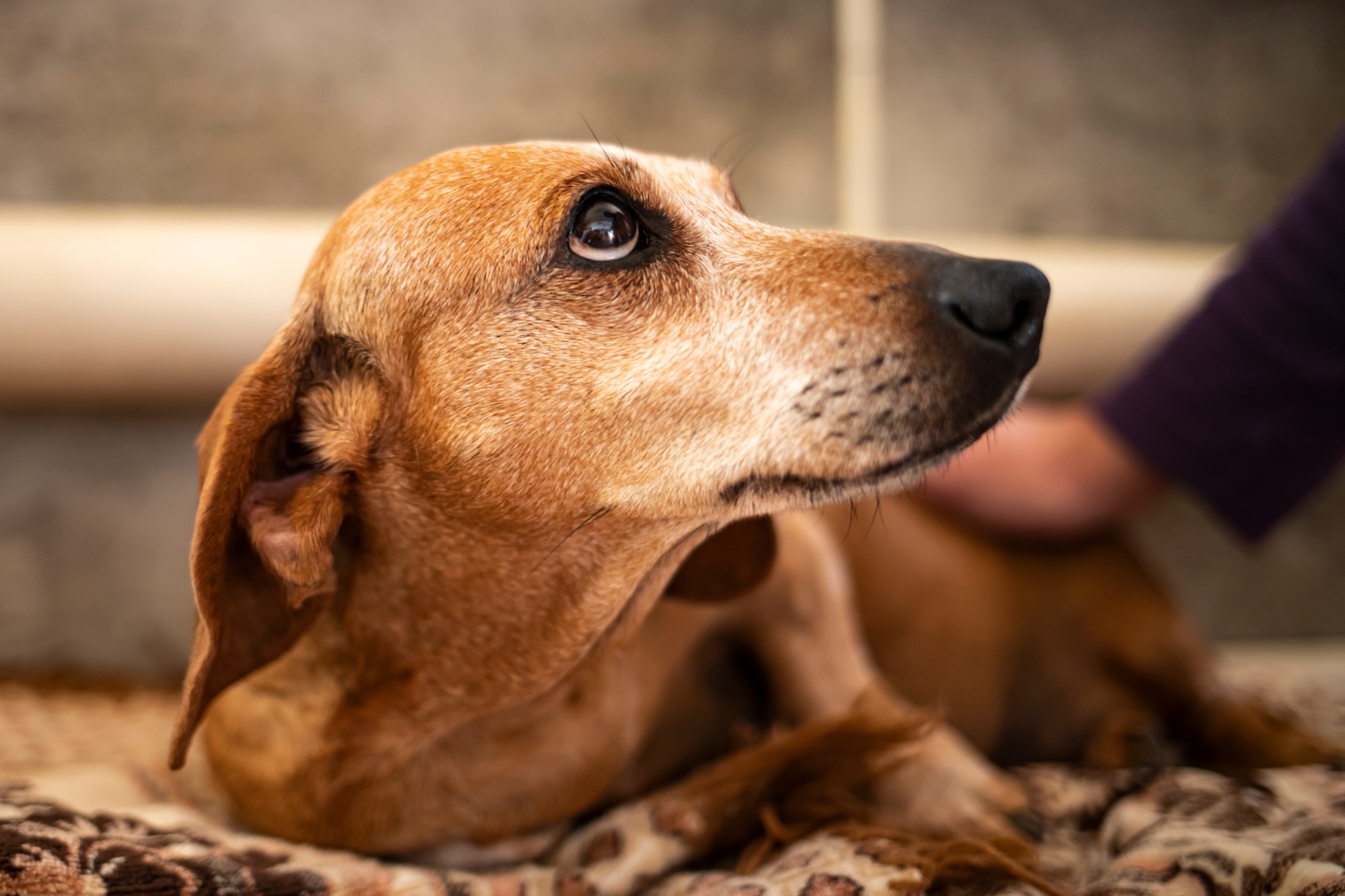All dogs vomit occasionally, so if your dog only does so once in a while it may not be a major cause for concern. But you should pay attention to your dog’s health—and, if your dog vomits, it’s a good idea to examine what comes out.
For a more comprehensive look at conditions that could cause your dog to vomit, check out our guide. And if your dog vomits repeatedly or you have any reason to suspect they’re sick, contact a vet as soon as you can. In the meantime, here is some information about why there might be mucus in your dog’s vomit, and what you should do about it.
Reasons that a dog might vomit mucus
Mucus serves an important role in your dog’s digestive system, lubricating their colon and making it easier for them to poop. It’s slimy-looking, and may appear clear, cloudy, yellow, or white.
If you see a small amount of mucus in your dog’s vomit, it’s not necessarily something to worry about–but you should be on the lookout and tell your vet what you’ve seen. If you observe a lot of mucus in your dog’s vomit, if it appears repeatedly, or if your dog is regularly vomiting at all, that calls for a prompt visit to a veterinarian. Vomiting more than once or twice could indicate a serious illness, and if your dog keeps vomiting they are likely at risk of becoming dehydrated without treatment.
Below are some of the most common reasons you’d see mucus in a dog’s vomit.
A change in diet or dietary indiscretion
If your dog’s diet has shifted, or if they ate something they shouldn’t have, that could cause stomach upset. If they vomit, it might include mucus or something that looks like it.
If your dog only vomits once after a dietary indiscretion—and you know that what they ate isn’t dangerous—you could let their stomach settle, temporarily switch to a bland diet like boiled chicken and white rice, and make sure they have fresh water to drink so they don’t get dehydrated. In the context of a change in diet, if they vomit once but seem otherwise fine, slow the transition down to avoid stomach upset.
But if your dog throws up more than once or twice, or has eaten something that you think might be poisonous to dogs or cause a bowel obstruction, you should call a veterinarian right away. Generally, when in doubt, seek a vet’s advice.
Kennel cough
Dogs may cough up white, foamy mucus if they have kennel cough–and it might seem like they’ve vomited the substance. This can also occur with other respiratory issues.
Kennel cough is usually mild and often resolves on its own, but in rare cases it can lead to serious complications. Your dog can catch it anywhere they interact with other pups. If your dog is coughing and vomiting white, foamy mucus, you should take them to see a vet. The vet will determine if your pup has kennel cough, and will provide you with some instructions on how to help your pooch recover.
Kennel cough is most commonly caused by bordetella, for which a vaccine is available. Talk to your veterinarian about an appropriate vaccination schedule for your pup.
Bilious Vomiting Syndrome (BVS)
If your dog vomits yellow liquid or foam after they haven’t eaten for a long time, they may have Bilious Vomiting Syndrome (BVS). While this yellow matter may look like mucus to you, what dogs with BVS vomit is actually bile, a substance produced by the liver that helps with digestion. BVS can often be treated by feeding your dog smaller, more frequent meals–but don’t assume that’s what your dog has. Visit the veterinarian first to rule out more serious conditions.
Parasites
Among other problems, parasites may cause a dog to vomit. A dog infected with a parasite may also show other signs like diarrhea (which may also contain blood or mucus), a reduced appetite, and scooting. If you suspect that your dog has a parasite, get them to the vet as soon as you can for testing and, if necessary, medication. Parasites in dogs are usually quite treatable, but you should never ignore them.
Eating or drinking too quickly
Just like people, dogs who scarf their food down too fast might not feel too well afterwards. If you think your dog might be speeding through mealtime, you could try a puzzle bowl or slow feeder to put the brakes on a bit. An extra benefit of this approach is that it can be fun for your pup and keep their mind more active while they eat.
Inflammatory Bowel Disease (IBD)
Dogs whose intestinal tracts are chronically irritated may show a variety of signs that they’re not feeling well, vomiting among them–and the vomit could include mucus. A dog with IBD might also experience diarrhea or a reduced appetite. If you think your dog might have IBD, talk to your veterinarian about getting a diagnosis and treatment. Depending on your dog’s individual situation, the vet might recommend a modified diet, drugs, supplements, or a combination thereof.
Parvovirus
Parvovirus is another disease that may cause your dog to vomit. It’s most common in young puppies, and most adult dogs are vaccinated against it. In addition to vomiting, dogs with parvovirus may experience loss of appetite, abdominal pain, bloating, and severe diarrhea.
If you suspect your dog may have parvovirus, take them to the vet as soon as you can. Tell the veterinarian ahead of time that you think your dog has parvo–it’s a contagious disease, and they need to take steps to protect other patients. Most dogs who receive treatment survive parvo, but it’s important to act quickly to give your dog the best chance of success.
All dog owners should talk to their vets about the parvovirus vaccination schedule, and what precautions to take with their puppies before the series of shots has been completed.
The bottom line
There are many possible reasons that your dog could vomit something that looks like mucus, not all of which are listed here. Overall, any change in your dog’s behavior or physical condition merits a call to the veterinarian. Observing your pup closely and getting them medical attention when necessary–along with feeding them a complete, balanced diet and giving them plenty of love and exercise–are among the best ways you can keep them happy and healthy.





